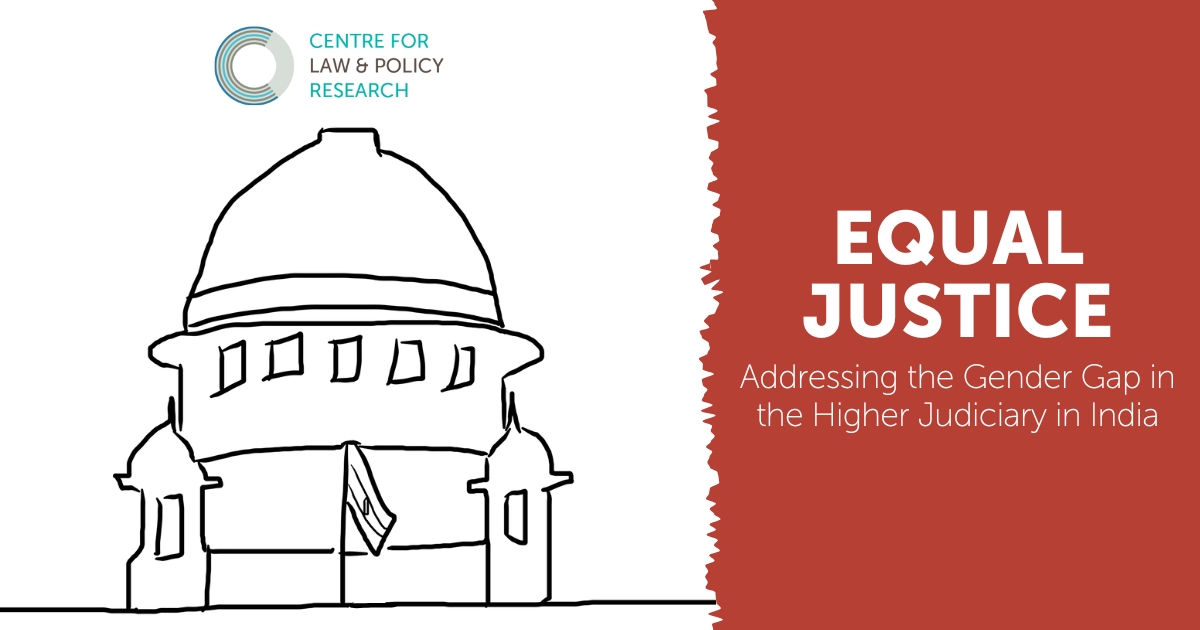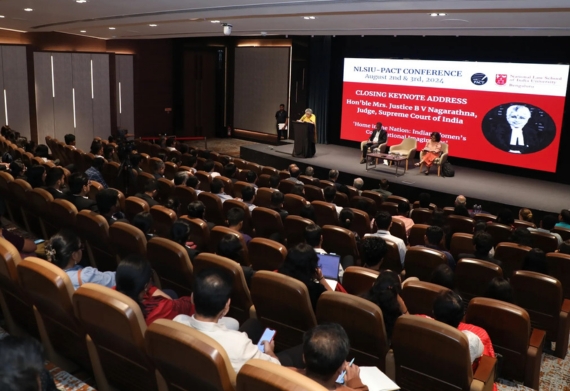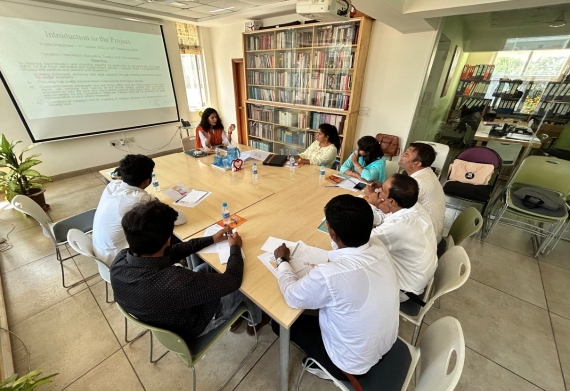CLPR has launched a research and advocacy initiative aiming to address the glaring gender gap in the higher judiciary and to secure equal and inclusive representation of women.
When we examine the status of women in the Indian legal system, one of the biggest and most glaring problems we see is the significantly low numbers of women occupying positions in the higher judiciary being the High Courts and the Supreme Court.
Women comprise only a small fraction of judges in the higher judiciary. Currently, the Supreme Court has only 3 female judges (8.82%) out of its working strength of 34 judges, and only 8 judges (4%) in the Supreme Court have been female. India has never had a woman Chief Justice of India since 1950, and the first woman who will become Chief Justice is Justice Nagarathna, but only for a few days in 2025. Out of 779 permanent and additional judges in the High Courts across India, only 105 are female judges (13.47%). Only 12 out of 242 judges in the High Court Chief Justices have been women, i.e. less than 5% of the total. Even amongst these low numbers, the number of women from marginalized backgrounds such as from the non-privileged castes – Dalit / Adivasi women, Muslim and Christian women (minority religions), women who are first generation lawyers and women from socio-economic disadvantaged backgrounds, is almost negligible. The opportunities are particularly skewed when it comes to elevation of women lawyers from the Bar to the higher judiciary, as against women from the lower judiciary being promoted to the High Courts and the Supreme Court.
Factors that contribute to women’s pathways to leadership and elevation being obstructed include:
- Collegium system of appointment: One of the main barriers that women face due to which they do not get appointed to the higher judiciary is the opaque appointment procedure, lack of transparency, absence of an application process or a national judicial appointment commission. Judges are presently appointed to the High Courts and the Supreme Court by the senior judges themselves who form a collegium system. The opaque methods of appointments disadvantage women and especially women from marginalized backgrounds.
- Deep-rooted Patriarchy and Sexism: The underrepresentation of women in the higher judiciary is a result of institutional obstacles and deep-rooted gender biases against women. Women are not recommended for judgeship, which lies in the hands of the members of the Collegium, and female lawyers who are nominated face heightened scrutiny for judgeship and higher eligibility barriers, perpetuating gender inequalities.
- Infrastructure Challenges: The challenges faced by women judges are worsened by the lack of supportive policies to address sexual harassment and discrimination. This hinders their professional advancement and leads to their underrepresentation in higher judicial positions. The lack of inclusive infrastructure such as childcare facilities and gender-sensitive amenities, further marginalizes women in the legal profession.
This not only affects women lawyers in the High Court and Supreme Court who do not get equal opportunities for advancement in the legal profession, it is also women and gender diverse law students and future lawyers who do not get to see enough role models for themselves in positions of leadership in the judiciary but also the entire legal system because the lack of women would fail to build trust and legitimacy of the judiciary.
Click below to view the infographics, breaking down some of the data points.



